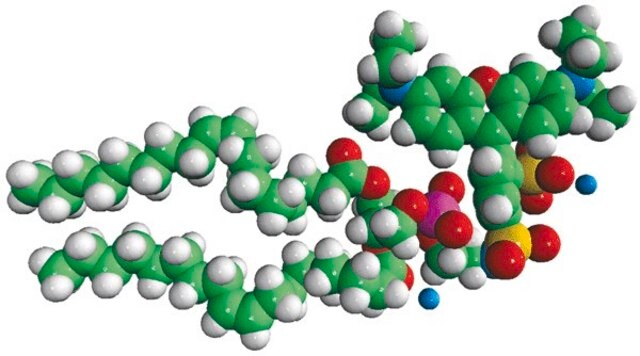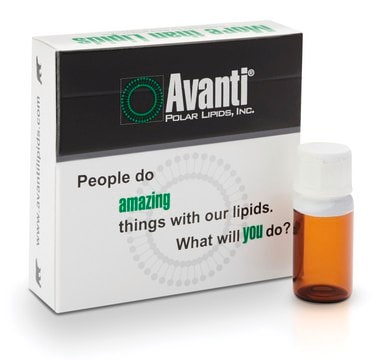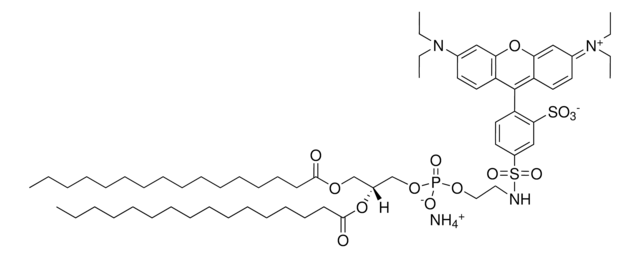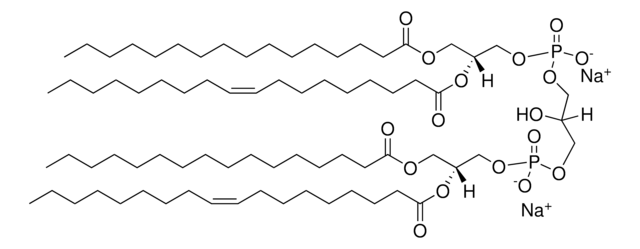840034C
Avanti
16:0-18:1 PS (POPS)
Avanti Research™ - A Croda Brand
Synonym(s):
1-hexadecanoyl-2--(9Z-octadecenoyl)-sn-glycero-3-phospho-L-serine (sodium salt); POPS; PS(16:0/18:1(9Z)); 110669
About This Item
Recommended Products
description
1-palmitoyl-2-oleoyl-sn-glycero-3-phospho-L-serine (sodium salt), chloroform
Assay
>99% (TLC)
form
liquid
packaging
pkg of 1 × 1 mL (840034C-10mg)
pkg of 1 × 2.5 mL (840034C-25mg)
pkg of 2 × 4 mL (840034C-200mg)
pkg of 5 × 4 mL (840034C-500mg)
manufacturer/tradename
Avanti Research™ - A Croda Brand
concentration
10 mg/mL (840034C-10mg)
10 mg/mL (840034C-25mg)
25 mg/mL (840034C-200mg)
25 mg/mL (840034C-500mg)
lipid type
cardiolipins
phospholipids
shipped in
dry ice
storage temp.
−20°C
SMILES string
[H][C@@](COP([O-])(OC[C@](C([O-])=O)([H])[NH3+])=O)(OC(CCCCCCC/C=C\CCCCCCCC)=O)COC(CCCCCCCCCCCCCCC)=O.[Na+]
Packaging
Legal Information
also commonly purchased with this product
Signal Word
Danger
Hazard Statements
Precautionary Statements
Hazard Classifications
Acute Tox. 3 Inhalation - Acute Tox. 4 Oral - Aquatic Chronic 3 - Carc. 2 - Eye Irrit. 2 - Repr. 2 - Skin Irrit. 2 - STOT RE 1 - STOT SE 3
Target Organs
Central nervous system, Liver,Kidney
Storage Class Code
6.1C - Combustible acute toxic Cat.3 / toxic compounds or compounds which causing chronic effects
WGK
WGK 3
Flash Point(F)
Not applicable
Flash Point(C)
Not applicable
Choose from one of the most recent versions:
Certificates of Analysis (COA)
Sorry, we don't have COAs for this product available online at this time.
If you need assistance, please contact Customer Support.
Already Own This Product?
Find documentation for the products that you have recently purchased in the Document Library.
Customers Also Viewed
Our team of scientists has experience in all areas of research including Life Science, Material Science, Chemical Synthesis, Chromatography, Analytical and many others.
Contact Technical Service



















